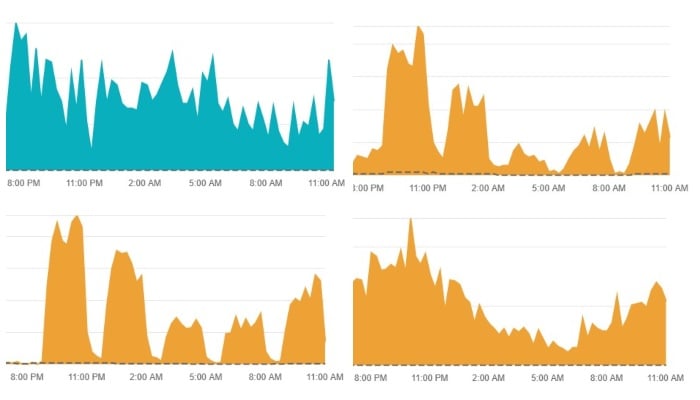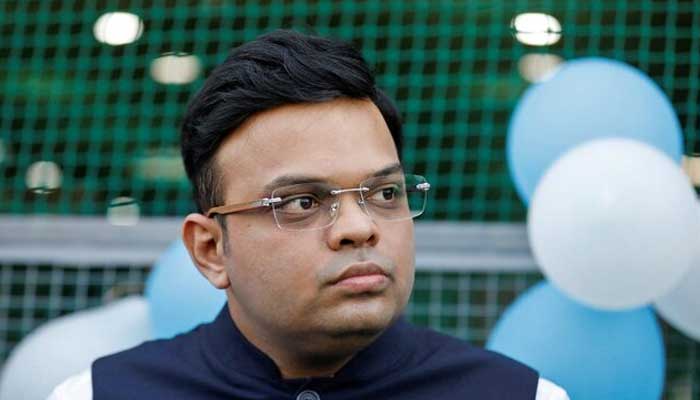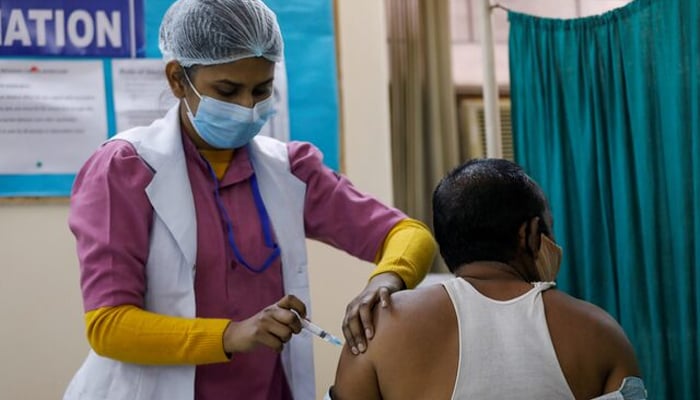
Netizens in Karachi as well as various cities across Pakistan on Sunday woke up to slow internet speed resulting in hindered access featuring difficulties faced in sharing media.
Users in Karachi's North Nazimabad, Gulshan-e-Iqbal, and Karsaz complained of slow internet speeds along with disrupted Wi-Fi services and issues with the popular messaging platform WhatsApp.
In Khyber Pakhtunkhwa capital, Peshawar, people reported problems with internet browsing, as well as uploading.
Similar issues were also reported across Balochistan including the capital Quetta where WhatsApp services have been affected.
The disrupted internet access also adversely affected those engaged in online businesses.
The internet issues were confirmed by Downdetector which showed Gmail, WhatsApp, Instagram and TikTok outages spiking at around 11am today.
Internet disruptions are not unusual in Pakistan, as the country has been facing sporadic outages and access hindrances for months, now for various reasons.
Last week, internet and mobile services were disrupted in the wake of Pakistan Tehreek-e-Insaf's (PTI) "do-or-die" protest in Islamabad.
Furthermore, the incumbent government has carried out multiple tests of its internet firewall, with the first and second trials conducted in July and August, respectively.
On both occasions, the trials slowed down internet speeds and disrupted digital platforms.
However, it is pertinent to mention that no specific reason has come to light for today's slowed internet speed.
'Surely difficulties do exist'
Speaking to Geo News regarding the prevailing issues internet, Minister for IT Shaza Fatima Khawaja addressed the issue of restrictions on X, formerly Twitter, which has been restricted in the country for months owing to security concerns raised by the government regarding the content propagated on the platform.
"X is used by less than 2% of the people in Pakistan. If the government's intention was to restrict the freedom of expression then other platforms would've faced restrictions such as Facebook and TikTok which are widely used by the masses," she said.
When asked about why government officials such as Prime Minister Shehbaz Sharif and others were using the platform when it was restricted for the common man, the minister underscored diplomatic obligations which initially arose when the Chinese president, Saudi Arabia and other countries congratulated PM Shehbaz on X on becoming the country's premier.
"A diplomatic situation was created and it was deliberated upon how to make sure that the prime minister's message is [duly] conveyed," she added.
Responding to a question regarding the internet firewall and resulting internet issues, Khawaja said that the country faces millions of cyberattacks on a daily basis and lamented that the whole firewall issue has "been blown out of proportions".
"We have a web management system which has been operational for the past 10 years [....] The government of Pakistan needs improved and better cybersecurity [mechanism].
"There is nothing controversial if a country takes measures for [improving] its cybersecurity," remarked the IT minister.
When pressed on the government censorship, Khawaja maintained that the freedom of expression was not hindered as all digital media platforms were operational and were not restricted.
Highlighting the terrorism issue, she said that several law enforcement agencies (LEAs) personnel were martyred in nearly one month.
"My job is to protect my own industry. Whenever there's a security-related issue [it is] the Ministry of Interior that [gives directions to] the Pakistan Telecommunication Authority (PTA)," she noted.
"Broadband, widely used by the [IT, business industry] is not restricted. The [IT] export figures have smashed records last month. We have recorded a 40% growth compared to last year. If the industry was being impacted then you would not see such numbers," added the minister while addressing the concerns regarding the financial impact on the IT industry.
Her remarks come as experts, while highlighting the telecom sector's daily profit of $3 billion, have said that around 60-70% of this profit was linked to 3G and 4G networks and that slow internet speed was negatively affecting the country's economy and the gross domestic product (GDP).
"[Cellular] data is fully functional in the country," she said while referring to the problems faced by users in sharing media and added that this "temporary issue" will definitely be resolved.
"I will not deny [it], surely difficulties do exist," she said.
Complaining about the internet bandwidth of 274 megahertz, the minister said that the country was the lowest ranked in terms of spectrum availability.
However, she added that the the government aims to auction 550 to 600MHZ internet spectrum in April next year which will improve the overall bandwidth and speed.
Complaining about the infrastructure shortfalls, the IT minister said that the country has less number of telecom towers in light of the rise in population.
On the issue of the use of fibre, she said that the government has prepared a policy to encourage investment in that domain so that high-speed internet is accessible in people's homes.
She further revealed that four submarine cables will be connected to the country in the coming year.














